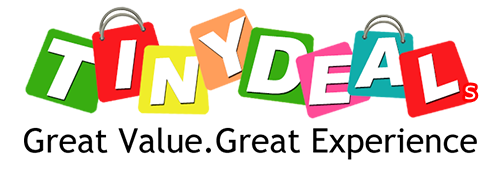- New York, 88 Main street
- +1(929)560-0581 (the call is free)
- Mon-Sun 9.00 - 18.00
- info@tiny-deals.com
- View on map
+1(929)560-0581 Mon-Fr 9a.m.-6p.m.
Email info@tiny-deals.com
Address
17 Must-Ask Questions When Negotiating with Suppliers

Choosing the right supplier is crucial for business success. Suppliers play a vital role in the supply chain by ensuring smooth operations between supply and demand. Whether you rely on a dropshipping supplier or manage inventory yourself, selecting the right partner can significantly impact your business performance.
To make an informed decision, you must evaluate potential suppliers carefully. In this article, we outline 17 essential questions to ask when negotiating with suppliers. Their answers will help you determine if they align with your business goals and whether they offer the best deal.
1. How Long Have You Been in Business?
A supplier’s experience speaks volumes about their reliability and efficiency. A long-standing business often has well-established processes and the capacity to handle bulk orders. However, some seasoned suppliers may struggle with stock shortages due to high demand. It's essential to verify their ability to meet your needs consistently.
2. What Sets You Apart from Competitors?
This question allows suppliers to highlight their unique strengths. Whether it's competitive pricing, high-quality products, or fast shipping, their response should align with your business priorities. Conduct your research to confirm the claims they make.
3. What Products Do You Specialize In?
If you focus on a specific product category, working with a specialized supplier ensures better product expertise. However, if you sell a variety of items, partnering with a supplier offering a diverse product range may be more convenient, particularly for dropshipping businesses.
4. What Is the Minimum Order Quantity (MOQ)?
Understanding MOQ requirements helps determine if a supplier is a good fit. Established businesses may not mind high MOQs, but startups should seek suppliers with low or no MOQ requirements to avoid excess inventory.
5. What Is Your Order Processing Time?
Customers expect fast order fulfillment. A processing time of 24–72 hours is generally acceptable, but longer delays can impact customer satisfaction. Ensure the supplier operates within a reasonable timeframe and clarifies their policies for weekends and holidays.
6. What Is Your Shipping Coverage?
Ask whether the supplier delivers locally or internationally. If you run an eCommerce store with global customers, your supplier must support worldwide shipping. A supplier with international reach can help you scale your business effortlessly.
7. What Shipping Methods Do You Offer?
Different customers prefer different shipping options based on speed and cost. Reliable suppliers partner with multiple carriers and offer various shipping methods, including express delivery, air freight, and sea shipping. Some even provide free shipping to select locations.
8. Do You Have an Integrated Data Feed System?
An integrated system ensures real-time inventory updates between your store and the supplier. This prevents stockouts and allows you to manage inventory efficiently, keeping your customers informed about product availability.
9. What Is Your Refund and Return Policy?
Returns are inevitable in any business. A fair and clear return policy can enhance customer trust. Ensure the supplier’s policy aligns with your expectations to prevent disputes and maintain customer satisfaction.
10. What Are Your Pricing Structure and Profit Margins?
Understanding all associated costs—including commissions, handling fees, customs duties, and shipping charges—helps determine profitability. Ask about expected profit margins to see if they align with your business goals.
11. Do You Have a Customer Support Helpline?
A responsive supplier is crucial for resolving issues quickly. Ensure they offer reliable communication channels such as email, live chat, or phone support. Language proficiency, especially in English, is an added advantage.
12. Can I See Customer Reviews About Your Products and Services?
Reputable suppliers showcase customer reviews on their websites. Reading these testimonials can provide insight into product quality and customer service efficiency. Positive feedback from existing clients can boost your confidence in their reliability.
13. Do You Offer Customization and Private Labeling?
Branding is essential for business growth. A supplier who provides product customization, repackaging, and private labeling can help you build brand recognition. Ask whether these services are available and if they require a minimum order.
14. How Do You Justify Your Pricing?
Price alone shouldn’t be the deciding factor. However, suppliers must justify their rates. If they charge more than competitors, they should explain why—whether it’s superior quality, lower labor costs, or advanced logistics.
15. Do You Sell Directly to Consumers?
Some wholesalers sell to both businesses and end consumers. If a supplier offers retail pricing lower than your markup, it can make it difficult for you to compete. Ensure you’re working with a true wholesale supplier to maintain your profit margins.
16. Do You Offer Discounts on Bulk Orders?
Many suppliers provide incentives for large purchases, including discounts, rebates, or reward programs. Ask about bulk-buying benefits to maximize savings and profitability.
17. Do You Charge a Membership or Subscription Fee?
Some suppliers require a monthly fee for access to their services. This could indicate financial instability or a poor business model. Ideally, a supplier should not charge fees just to allow you to do business with them.
Final Thoughts
Asking these key questions when negotiating with suppliers helps you assess their reliability and determine if they align with your business needs. Any delays, stock issues, or poor-quality products from a supplier can negatively impact your business reputation.
If you're struggling to find the right supplier, consider Chinabrands. They offer competitive pricing, global shipping, no MOQ requirements, fast order processing, and strong quality control.
Your supplier's performance directly influences your business success, so choose wisely. For a trusted supplier recommendation, visit TinyDeals to establish a solid business foundation and build a reputable brand.
No posts found
Write a review- New York, 88 Main street
- +1(929)560-0581 (the call is free)
- Mon-Sun 9.00 - 18.00
- info@tiny-deals.com
- View on map




